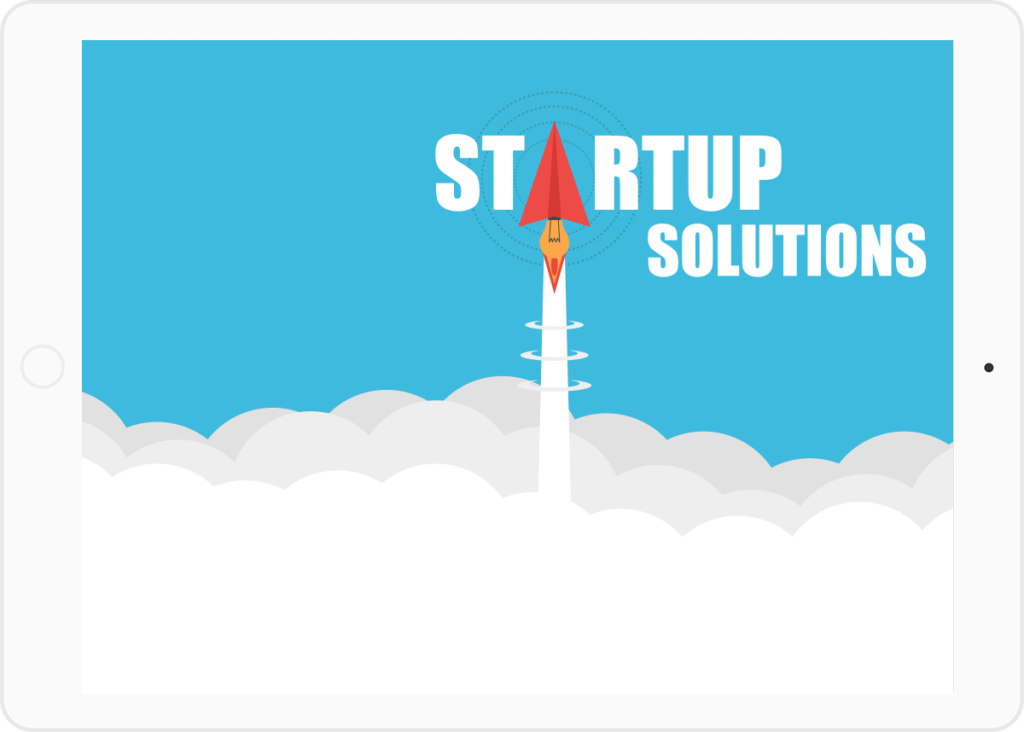When you first start a business, it can be intimidating. You’ll have to face a lot of struggles and challenges that bigger, more established businesses never have to worry about. You’ll deal with limited resources, a nonexistent reputation, concerns over cash flow and only speculative information about your target demographics. When you look at it this way, it seems impossible that a startup could ever out-compete a bigger firm for a given client. Unless you have an in-demand startup solution that literally nobody else on the planet can offer, your limitations at a startup will put you at a disadvantage against the bigger companies in your space.

Agility
Startups are young and formless for the first couple of years. You may have a solid business plan and an operations strategy in place, but there’s nothing confining you to those structures. Big corporations are forced to keep their models the same to keep the board of directors, the investors and their customer base happy. As a startup, you can do whatever you want. This agility comes in handy when something disrupts the industry, such as a new technological development or an even newer competitor. Big businesses must absorb the blow and respond slowly as their massive gears begin to turn. As a startup, you can turn on a dime and rebuild everything from the ground up, if necessary.
Team chemistry
Some major corporations have casual atmospheres, but for the most part, any big business you walk into will be filled with walls, offices and cubicles. The people from accounting don’t know the people from marketing, and the CEO probably doesn’t know anyone below him/her. In a startup, you have no choice but to bond with the other members of your team. You may have three people or three dozen, but you’ll be working so closely together on work that matters to all of you that you’ll have a natural chemistry in your working relationships. That chemistry matters more than you might think. It means your workers will be more productive and more satisfied with their jobs, giving you more reliable work and a lower turnaround.
Less bureaucracy
In large corporations, everything must be formalized. Every minute process is well-documented, and there are rules surrounding everything. Usually, when a decision is to be made, it must undergo rigorous evaluation by multiple people in multiple department. In essence, the gears of bureaucracy slow everything to a crawl and formalize processes that never needed formalizing in the first place. While you might have some solid rules and formal processes in place, your startup doesn’t have a fraction of the bureaucratic nonsense that your large competitors do. You can make decisions faster and work more efficiently because of it.
Competitive pricing
Pricing is a difficult issue to speak about broadly. Each industry must consider different factors when it comes to pricing. For example, in food product development, larger companies have a pricing advantage because they have access to more equipment, they can do larger runs and save money on items per piece. However, for most industries, startups have the advantage when it comes to pricing. Startups have less overhead. Because fewer people are using fewer resources to develop products and services, they can be priced more aggressively than those same products and services churned out by a multi-level, massive corporation. You’ll also have more flexibility in pricing, open to negotiation, so you’ll be able to secure more clients.

https://ezinearticles.com/?A-Few-Problems-Facing-Small-Business-Startups&id=7539257
Personality
Finally, and perhaps most importantly, because startups have fewer people within an organization, they tend to have a much better, more accessible brand personality. The CEO is just another member of the team and makes appearances at most meetings, giving a face to the company. The employees, taking a smaller salary and having more freedom, all actively want to be a part of the company, so they’re happier and more fun to work with. Some customers will naturally gravitate toward you because you are a startup. You’re novel and you’re an underdog. People love that. Use these strengths to your advantage during your first few years of operation. Your larger competitors may have the drop on you when it comes to resources and influence, but your agility and underdog status will balance out the odds. If you can utilize strategies that emphasize these natural startup advantages, you’ll be in a far better position to succeed in the long term.

Agility
Startups are smaller and less structured. They are also innovative and keep improving their business models, processes, and portfolio. These allow them to adapt to disruptive technologies and changes in market conditions. Established competitors face vested interests, a historic path, and a strong team culture. This makes them resistant to change.
Efficiency (Lean and Mean)
7 Advantages of a Startup
Established companies have high administrative overheads. Startups offer their services in a more efficient, cost-effective and competitive manner. They are likely to be aware of their limitations and tend to focus on their core strengths. This causes them to partner with other small organizations. Customers often benefit with a superior value proposition.
Team Culture
Employees of large corporations get attracted by prestige and big salaries. They easily lose sight of the company’s vision, mission and values and the success of its customers. Startup employees form a close-knit community that shares passion, beliefs, and values. They must work together for the good of the company, its customers and the world at large.

Flexibility
Your organization could have rather unique needs and demands for products and services. These might not be met by established service providers operating in a rigid manner. Startups are very flexible and are more likely to work at the hours, the place and in the manner that suits you.
Personalization
Startups deliver their products and services with a personal touch. This creates a uniquely personal experience for their customers. Startups also take time to study and understand their customers’ business requirements. This allows them to build lasting relationships with specific offerings and responsive solutions.
Versatility
Startup employees multitask and the salesperson could double up as the relationship manager. This adds continuity to customer relationships and enables startups to respond to emergencies. Most startups support learning and have a higher tolerance for mistakes. Both factors enhance the versatility of startup employees.
Fun
Last but now least, working with a startup could be a lot more fun. A startup doesn’t have to please everyone and may decide to select clients that are fun to work with. Spontaneous fun activities after work are a lot easier to organize in a startup. Your colleagues could become your best friends.

About Vingsfire
Vingsfire offers best in class services in Startup Solution. are you a startup and need a expertise solution then choose us. The packages for the service are competitive and the easily affordable for any. The customers availing the following services have been satisfied with the service provided.

